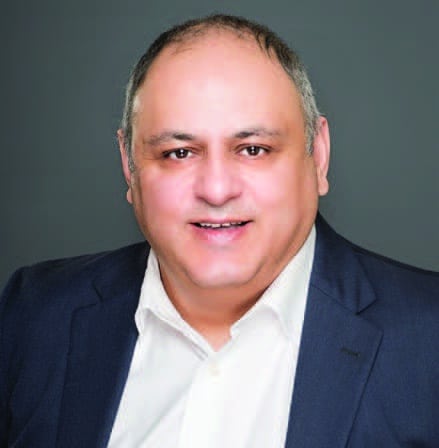Paying high amounts of income tax is, without a doubt, the main frustration for many dentists. As a dental practice owner, you’re likely paying more than what’s required by law. This is because many dental professionals fail to take full advantage of all the opportunities provided by the U.S. tax code. If you pay more than 30% in combined federal, state, and self-employment taxes, your practice may be paying too much. Therefore, it’s essential you optimize your tax planning and make the most of the available tax-effective wealth-creation strategies.
In this blog post, we will discuss six tax-saving strategies to minimize your tax burden:
1. Maximize your medical benefits
Dentists can take advantage of pre-tax dollars to pay for medical expenses and optimize deductible business expenses. If a dental practice is taxed as a corporation, dentists can qualify as their own employees and enjoy medical benefits and tax savings that are not available to sole proprietors or partnerships.
Besides, if you have a high-deductible health plan, you may be eligible for a tax deduction on your contributions to a Health Savings Account (HSA). Contributions to an HSA are tax-deductible, and withdrawals for qualified medical expenses are tax-free. By contributing the maximum amount to your HSA, you can reduce your taxable income.
2. Hire family members
Hiring family members can provide multiple benefits for dentists in terms of reducing taxes. When you hire your children for legitimate work, any salary they receive can be considered a tax-deductible expense to the business, just like any other employee.
Moreover, if your child is under 18, they don’t have to pay FICA taxes (Social Security and Medicare), and children under 21 aren’t required to pay unemployment taxes. While they will have to pay income taxes on their salary, the standard deduction is high.
In addition, hiring family members can enable them to participate in the retirement plans offered by the practice. It’s crucial to note, though, that your family member must be an actual employee with specific job duties, and their compensation must be reasonable.
3. Choose the right entity
Operating a dental practice under the right type of entity is vital and can result in considerable savings in self-employment taxes. Dentists who operate out of “S” Corporations can benefit from these savings, as can those who own their buildings and have their practice pay rent to a third-party real estate management entity
Some entities, such as LLCs and S-Corps, offer pass-through taxation, meaning that the business’s profits and losses are passed through to the individual owner’s personal tax returns. This can result in lower overall tax liability for the business and its owners.
4. Take advantage of Section 179
Section 179 is a tax deduction that allows businesses, including dental practices, to deduct the full purchase price of qualifying equipment and software purchased or financed during the tax year.
As a dentist, you can take advantage of Section 179 by purchasing and installing qualifying equipment, technology, and other assets such as office furniture, leasehold improvements, and security systems for your practice. Some examples of qualifying assets include dental chairs, x-ray machines, computer systems, software, and other dental equipment.
In 2022, the maximum amount that you could deduct under Section 179 was $1,050,000. In addition, the Section 179 deduction is available for both new and used equipment and technology. It’s important to note that if you have purchased and placed over $3.5 million in qualifying assets into service in the current tax year, there are some limitations to the Section 179 deduction. If you fall under this category, it’s best to consult with your accountant or financial advisor to determine your best tax planning options.
5. Choose the correct Retirement Plan
One way to reduce your taxable income is to contribute to a retirement plan, such as a 401(k) or IRA. These plans offer tax-deferred growth, meaning you won’t pay taxes on the earnings until you withdraw the money.
Funding a qualified retirement plan can help you save for your future while also reducing your tax burden. A profit-sharing plan with a 401k provision is usually the best option for dentists, but a defined benefit plan may be better if your taxable income exceeds $500,000 and you are looking to save aggressively for retirement. To help you choose the right plan for you, it’s always good to hire a professional like a dental CPA or a dental accountant to evaluate your case.
6. Hire a Dental CPA
Working with a tax professional can help you stay on top of your tax obligations and identify opportunities for tax savings. A tax professional can provide guidance on incorporating your practice, setting up retirement plans, tracking expenses, and planning capital expenditures. Additionally, they can help you stay in compliance with tax laws and avoid potential tax penalties.
They’re able to develop accurate and personalized tax planning, analyzing your financial situation as a whole. Tax planning brings together various components and determines how they can work together to maximize tax savings. It does not deal with investments or accounts directly but rather directs them to optimize tax savings. Tax planning can include IRA contributions, trusts, gifts to heirs, donations to charities, and other strategies that make the best use of available tax deductions and credits.
Here at Dental CPA, we have sophisticated tax planning techniques to minimize the impact of taxes on your dental practice. As a highly experienced CPA firm, our tax accountants are well-versed in federal and state tax law and will work hard to find you significant savings. We’ll engage every possible tax break, deduction, and incentive available to reduce your tax burden.




